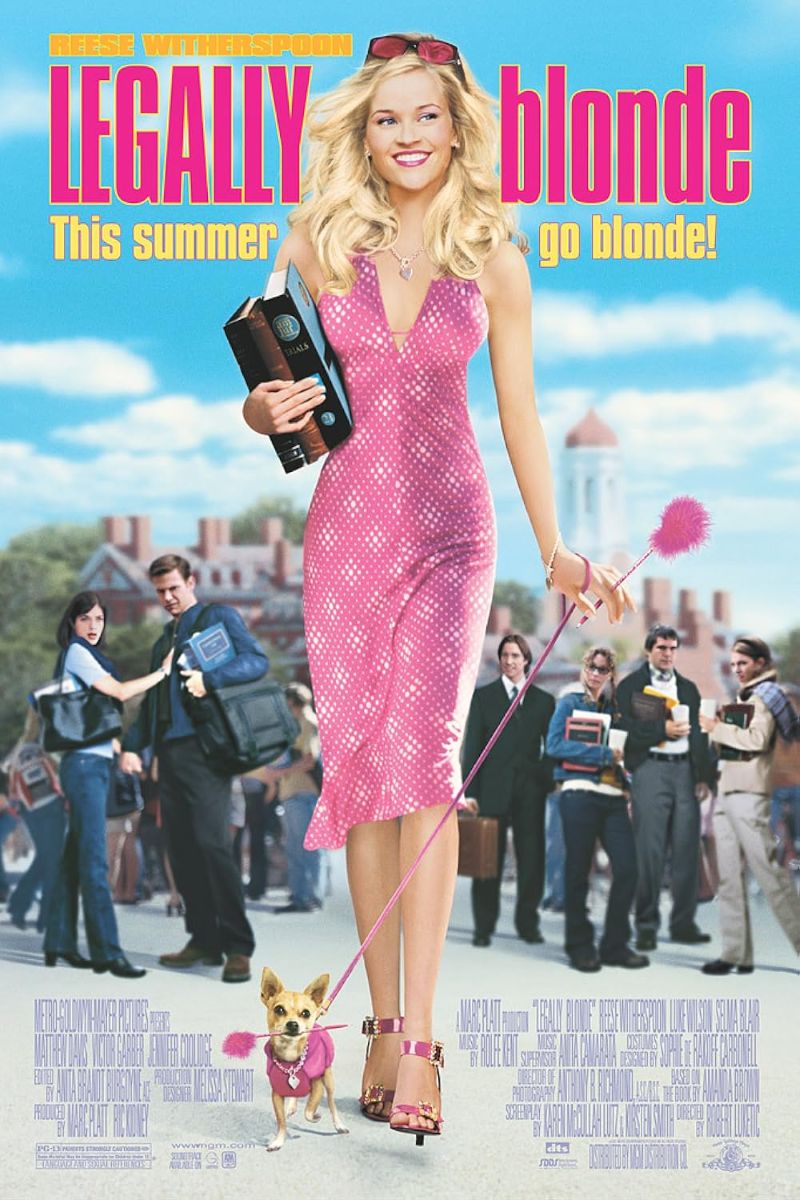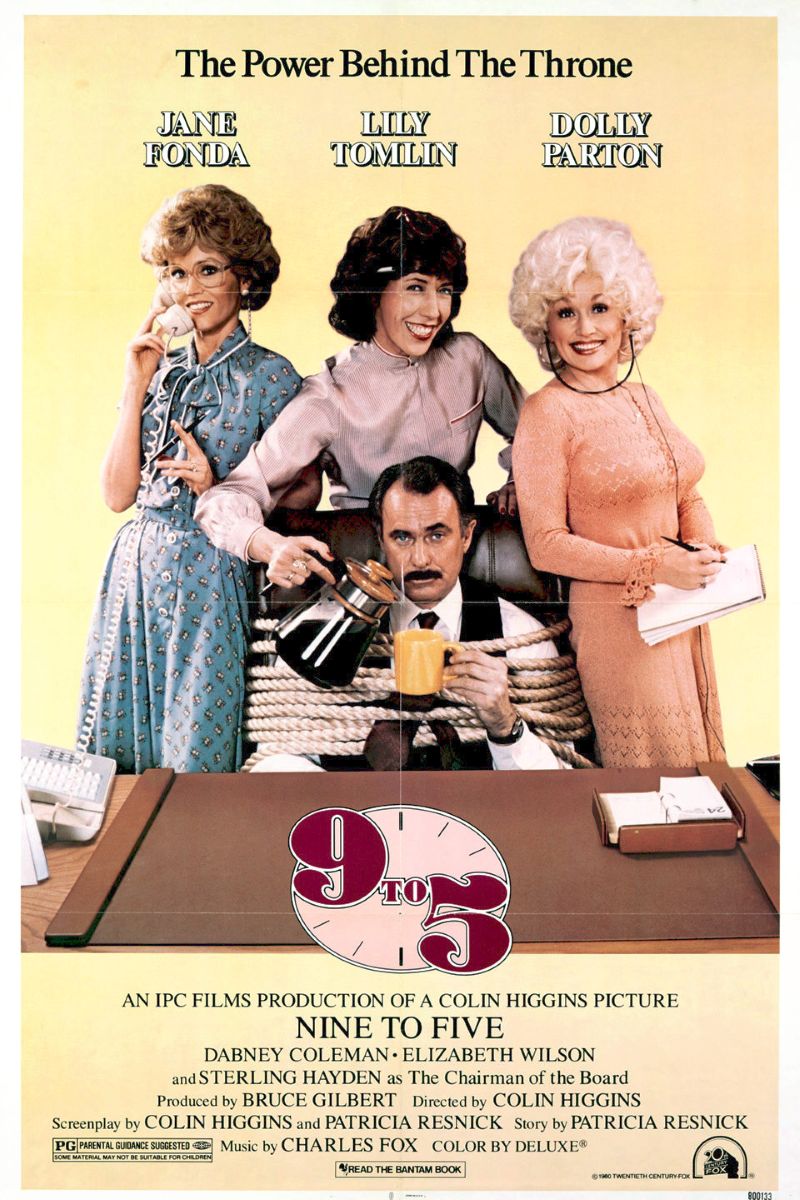
Legally Blonde
Legally Blonde
A groundbreaking comedy film where Reese Witherspoon's Elle Woods challenges stereotypes about blonde women. This 2001 film deeply explores female intelligence, workplace discrimination, and multiple facets of feminism through the story of a fashion-conscious girl entering Harvard Law School.
Cast
Related Topics
🎥 Film Analysis & Review
“Legally Blonde” stands as a revolutionary comedy that challenges stereotypes about femininity, intelligence, and ambition while delivering entertainment that resonates with audiences across generations. Through Elle Woods’s journey from sorority president to Harvard Law School graduate, the film presents a sophisticated examination of how society underestimates women, particularly those who embrace traditionally feminine interests and aesthetics.
Challenging the Intelligence-Femininity Binary
The film’s central achievement lies in its rejection of the false dichotomy between intelligence and femininity. Elle Woods proves that loving fashion, beauty, and traditionally feminine pursuits does not preclude academic excellence or professional competence. Her extensive knowledge of fashion and beauty actually becomes an asset in her legal work, particularly in the memorable perm maintenance scene during Chutney’s cross-examination.
This representation was revolutionary because it refused to require Elle to abandon her feminine interests to be taken seriously intellectually. Instead, the film argues that intelligence comes in many forms and that traditionally feminine knowledge deserves respect and recognition.
Systemic Discrimination in Elite Education
Elle’s experiences at Harvard Law School illuminate various forms of discrimination faced by women in elite educational settings. From her initial rejection despite impressive qualifications to the ongoing microaggressions from classmates and professors, the film depicts how institutional bias operates.
The character of Professor Stromwell represents both barrier and ally—initially skeptical of Elle but ultimately recognizing her potential and encouraging her growth. This complex portrayal shows how women in authority positions can both perpetuate and challenge systemic discrimination.
Sexual Harassment and Professional Ethics
The film’s handling of Professor Callahan’s sexual harassment of Elle was groundbreaking for its clear condemnation of abuse of power. Elle’s immediate rejection of his advances and her decision to pursue justice despite potential career consequences demonstrate agency and moral clarity.
Callahan’s assumption that Elle achieved her internship through sexual favors reflects real-world prejudices that attribute women’s success to sexuality rather than merit. Elle’s experience illustrates how harassment operates not just as individual misconduct but as a system that undermines women’s professional credibility.
Female Solidarity vs. Competition
Initially, the film seems to set up competition between Elle and Vivian Kensington, following typical “mean girl” narratives. However, it subverts this expectation by developing genuine friendship between the women as they recognize their common experiences of discrimination and dismissal.
Their alliance becomes crucial to the film’s resolution, demonstrating how female solidarity can overcome artificial competition created by systems that pit women against each other for limited opportunities.
Class and Privilege
While Elle faces gender discrimination, the film also acknowledges her class privilege. Her ability to attend Harvard is facilitated by family wealth, and her sorority background provides social capital that helps her navigate elite institutions.
This recognition adds complexity to the film’s feminist message by showing how different forms of privilege and discrimination intersect. Elle’s experience is shaped by both her gender disadvantages and her class advantages.
Professional Competence and Recognition
Elle’s success in the courtroom comes through preparation, intelligence, and specialized knowledge rather than luck or intuition. Her defense of Brooke Taylor Wyndham demonstrates legal skills developed through hard work and study, while her fashion expertise provides crucial insights that more traditionally trained lawyers missed.
The film’s resolution shows Elle earning recognition based on merit while maintaining her authentic self, suggesting that success doesn’t require conforming to masculine professional norms.
Cultural Impact and Legacy
“Legally Blonde” became a cultural phenomenon that influenced fashion, language, and attitudes toward femininity and intelligence. Elle’s pink wardrobe and confident attitude became iconic, while phrases like “bend and snap” entered popular vocabulary.
The film’s success led to sequels, a Broadway musical, and continued cultural relevance, demonstrating the appetite for stories that celebrate rather than diminish feminine interests and perspectives.
Educational Inspiration
The film inspired many women to pursue legal careers, with several law schools reporting increased female applications following its release. Elle Woods became a role model for combining personal authenticity with professional ambition.
This real-world impact demonstrates the power of positive representation in media to influence career choices and self-perception among young women.
Contemporary Relevance
Despite being released over two decades ago, the film’s themes remain relevant:
Workplace Discrimination: Women continue to face assumptions about their competence and methods of advancement.
Educational Barriers: Gender bias in academic settings persists, particularly in male-dominated fields.
Appearance-Based Prejudice: Society still struggles with valuing women who embrace traditional femininity alongside intellectual pursuits.
Sexual Harassment: The #MeToo movement has brought renewed attention to issues the film addressed early in the 21st century.
Limitations and Criticisms
Some critics argue that the film’s focus on individual success rather than systemic change limits its feminist message. Others note that Elle’s privilege makes her journey less representative of most women’s experiences.
However, these limitations don’t diminish the film’s achievement in challenging specific stereotypes and providing positive representation for women who refuse to choose between femininity and intelligence.
Conclusion
“Legally Blonde” succeeds in creating entertaining comedy while delivering meaningful social commentary about gender, intelligence, and professional success. By centering a protagonist who refuses to conform to limiting expectations about how smart women should behave or appear, the film opened space for more diverse representations of female competence and ambition.
The film’s lasting contribution lies in its demonstration that feminism can embrace rather than reject traditional femininity, and that intelligence and competence come in many forms. Elle Woods remains an enduring icon of authentic self-expression combined with professional excellence, inspiring audiences to challenge assumptions about what smart, successful women should look like or how they should behave.
🏆 Awards & Recognition
- • MTV Movie Award for Best Breakthrough Performance
- • Teen Choice Award for Best Comedy
- • Young Hollywood Award for Best Ensemble
⭐ Ratings & Links
Related Recommendations
讨论区
分享您的想法和观点
加入讨论
分享您的想法和观点
加载评论中...

